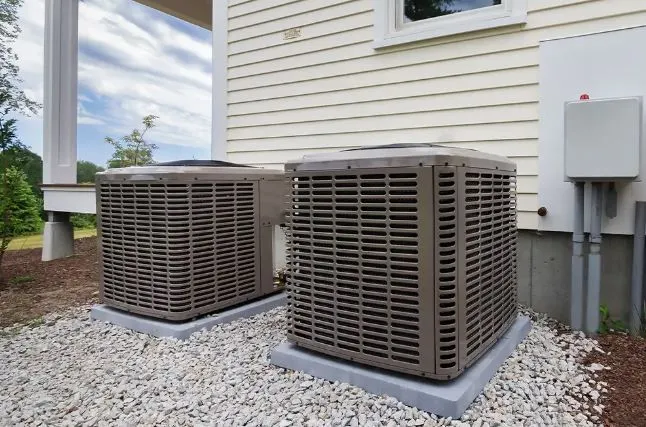How Long Should a Home HVAC System Last?

When investing in a home HVAC (heating, ventilation, and air conditioning) system, one of the critical considerations is its lifespan. The longevity of an HVAC system is essential not only for budget planning but also for ensuring comfort and efficiency in your home. Typically, the lifespan of an HVAC system can vary significantly based on several factors, including the type of system, maintenance practices, and usage patterns. Here, we delve into the average lifespan of different HVAC components and what you can do to maximize their longevity.
Average Lifespan of HVAC Components
1. Furnaces: A well-maintained furnace can last between 15 to 30 years. Gas furnaces often have a longer lifespan compared to electric ones due to the durability of their components. Regular maintenance, such as annual inspections and filter changes, can help extend the life of your furnace.
2. Air Conditioners: Central air conditioning units typically last between 15 to 20 years. However, this can vary depending on the climate and how often the system is used. Air conditioners in hotter climates or those that are used heavily during summer months may have shorter lifespans.
3. Heat Pumps: Heat pumps, which are used for both heating and cooling, generally last around 10 to 20 years. Their lifespan can be shorter than that of separate heating and cooling systems because they are used year-round.
4. Boilers: Boilers have a longer lifespan, often lasting 20 to 30 years. This durability is due to their simpler mechanical structure and fewer moving parts compared to other HVAC systems.
5. Ductless Mini-Splits: These systems usually last around 15 to 20 years. Since they are used to heat and cool specific zones in a home, their lifespan can vary based on usage and maintenance.
Factors Influencing HVAC Longevity
Several factors can influence the lifespan of your HVAC system:
1. Maintenance: Regular maintenance is crucial for extending the life of any HVAC system. This includes changing filters, cleaning ducts, and scheduling annual professional inspections. Well-maintained systems not only last longer but also operate more efficiently, saving you money on energy bills.
2. Usage: How frequently and intensively you use your HVAC system affects its lifespan. Systems that run constantly or are exposed to extreme weather conditions may wear out faster.
3. Quality of Installation: Proper installation is essential for the longevity of an HVAC system. Poor installation can lead to issues such as improper airflow, increased wear and tear, and inefficiency, all of which can shorten the system’s life.
4. Environmental Factors: The local climate and environment play a role. For instance, coastal areas with salty air can corrode components faster, while areas with high pollution can clog filters and reduce efficiency.
Maximizing HVAC Lifespan
To get the most out of your HVAC system, consider these tips:
1. Regular Maintenance: Schedule annual check-ups with a qualified HVAC technician to inspect and tune up your system. This helps catch potential issues early before they become major problems.
2. Filter Changes: Replace filters every one to three months, depending on usage and the type of filter. Clean filters ensure proper airflow and reduce strain on the system.
3. Thermostat Settings: Use programmable thermostats to optimize usage and reduce unnecessary wear. Setting the thermostat to a moderate temperature when you are away can extend the system’s life.
4. Professional Installation: Ensure your HVAC system is installed by certified professionals. A proper installation can prevent many common issues that reduce system longevity.
In conclusion, while the average lifespan of an HVAC system can range from 10 to 30 years depending on the component, proper maintenance and care can significantly extend this period. By understanding the factors that affect HVAC longevity and taking proactive steps to maintain your system, you can enjoy reliable and efficient heating and cooling in your home for many years to come.